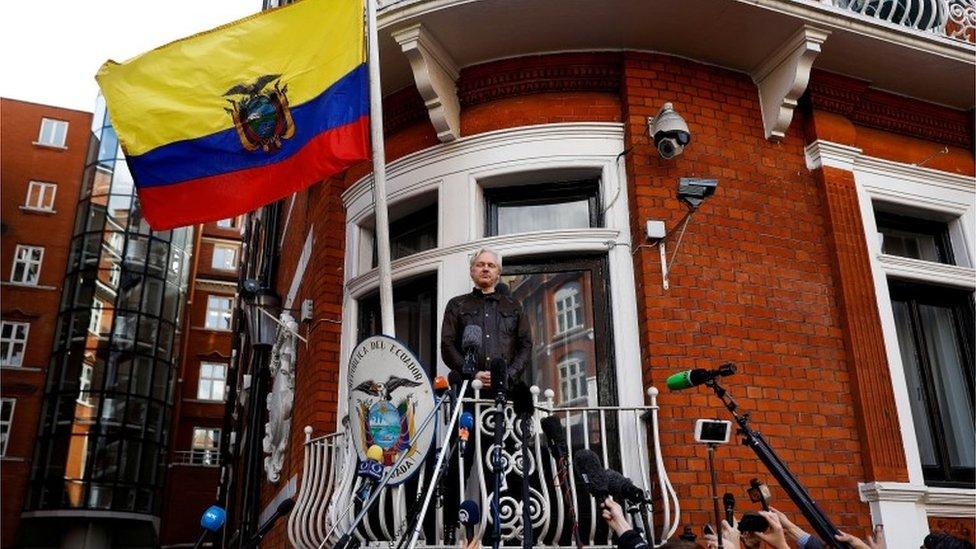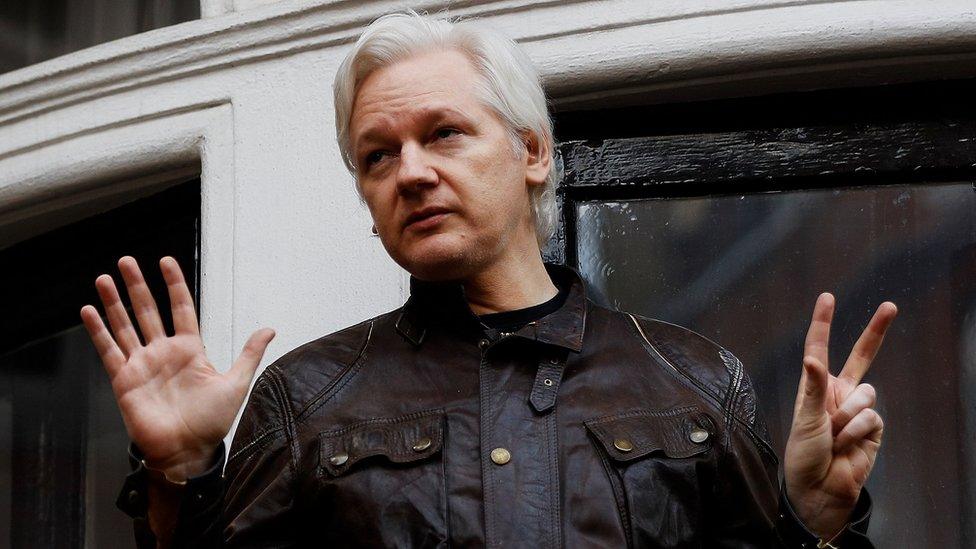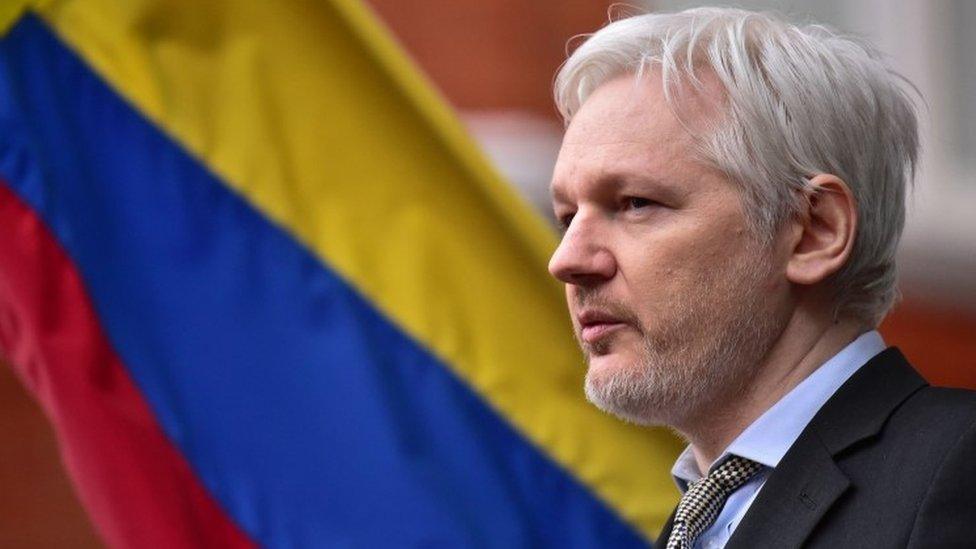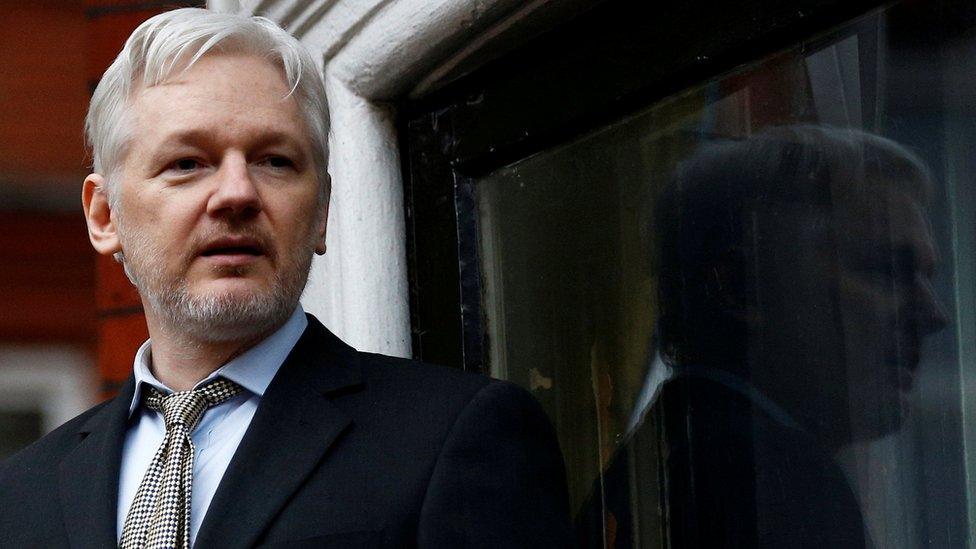WikiLeaks's Julian Assange becomes Ecuadorean citizen
- Published

The Ecuadorean government has confirmed that Julian Assange was granted Ecuadorean citizenship on 12 December.
Ecuador subsequently asked the UK to recognise Mr Assange as a diplomatic agent - a move that could have given him immunity.
The UK has refused, saying Mr Assange - who has been at the embassy since 2012 - should now leave and "face justice".
He had been wanted on assault claims in Sweden, which have been dropped, but now fears extradition to the US.
'No solution'
Mr Assange, 46, breached bail conditions when he sought political refuge at the Ecuadorean embassy, while facing sexual assault allegations in Sweden.
Prosecutors there dropped the allegations in May 2017.
However, UK police say he will be arrested if he leaves the embassy in Knightsbridge for failing to surrender to the court in 2012.
An FCO spokesman said: "The government of Ecuador recently requested diplomatic status for Mr Assange here in the UK. The UK did not grant that request, nor are we in talks with Ecuador on this matter.
"Ecuador knows that the way to resolve this issue is for Julian Assange to leave the embassy to face justice."
Responding to the UK's refusal to grant Mr Assange diplomatic status, Ecuador's foreign minister Maria Fernanda Espinosa said: "No solution will be achieved without international co-operation and the co-operation of the United Kingdom, which has also shown interest in seeking a way out."
She also said she feared threats to Mr Assange's life coming from third party states.
Earlier in the week Mr Assange posted a picture of himself in an Ecuadorean football shirt, fuelling rumours that he had been issued an Ecuadorean passport.
Allow X content?
This article contains content provided by X. We ask for your permission before anything is loaded, as they may be using cookies and other technologies. You may want to read X’s cookie policy, external and privacy policy, external before accepting. To view this content choose ‘accept and continue’.
In 2016, a UN panel stated that Mr Assange had been "arbitrarily detained" and should get compensation - a ruling branded by then UK Foreign Secretary Philip Hammond as "ridiculous".
The UK has also refused to guarantee that Mr Assange will not be extradited to the US where he could face charges for his role in releasing classified military documents.
- Published9 January 2018

- Published19 May 2017

- Published21 April 2017
